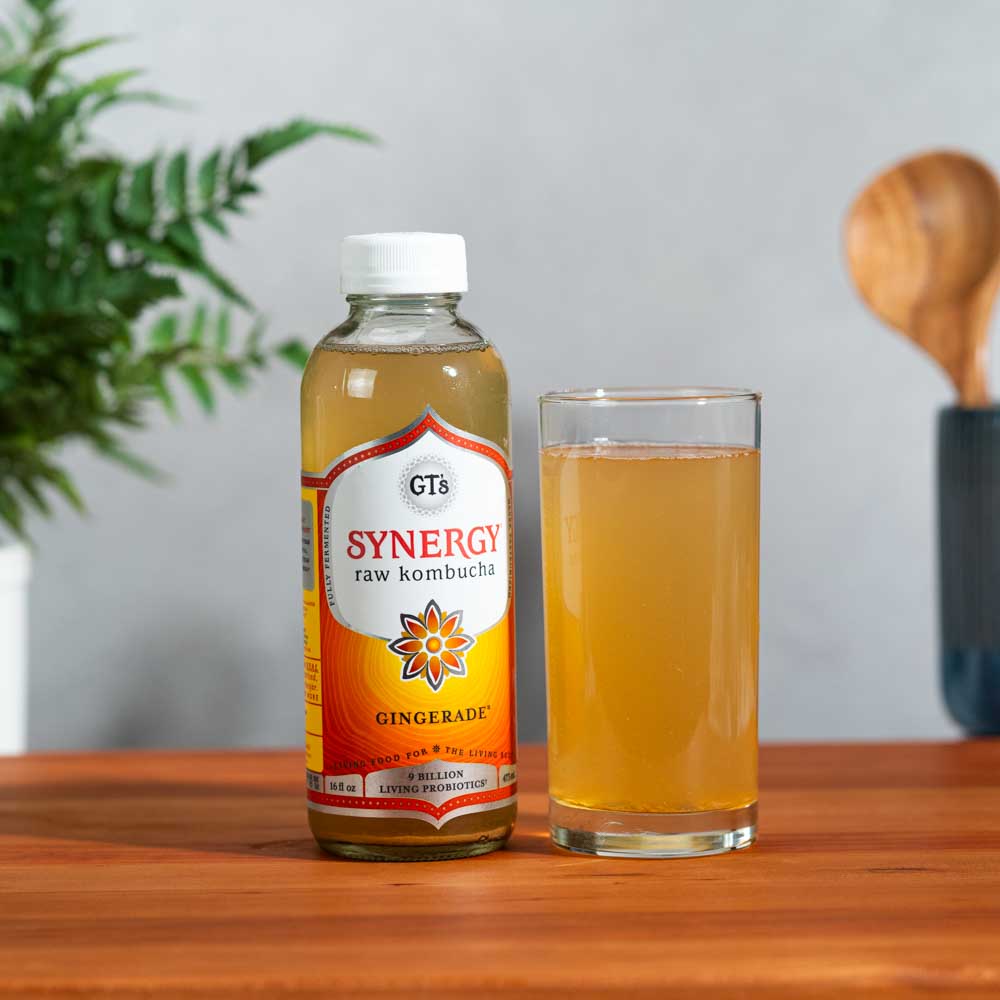What exactly is fermentation, and why is it important for us to consume fermented or “functional” foods and drinks? According to Frontiers for Young Minds, fermentation is a natural process in which sugars are broken down and transformed into other substances through chemical reactions carried out by beneficial microorganisms like bacteria and yeast. Humans have taken advantage of this process for thousands of years to develop essential products such as bread, yogurt, cheese, medicines, and even fuel. Today, fermentation is more relevant than ever, not only for food preservation, but also for its many health benefits. Fermented foods and drinks can increase nutrient availability, reduce inflammation, support digestion, and help balance the microbiome, the community of microbes living in our gut.
Stanford Medicine notes that traditional fermented foods such as kimchi in Korea and sauerkraut in Germany have been consumed for centuries, not just for their flavor but for their ability to promote gut health. These foods are rich in probiotics and living, “friendly” bacteria that may support healthy digestion and overall immunity. In recent years, the popularity of fermented and functional beverages has skyrocketed, especially through social media, where influencers and wellness advocates share colorful photos and gut health testimonials. As a result, drinks like kombucha and prebiotic sodas have become mainstream.
But what motivates people to consume these kinds of drinks today? For many, it’s about more than just following a trend. Anna Buxton, a senior at BHS and regular kombucha drinker, says she enjoys the drink not only for its potential health benefits but also because it offers a fizzy, refreshing alternative to soda. “I like the carbonated ones,” she shares, “because they’re better for me than soda, and they still taste good.”
Three of the most well-known and widely available better-for-you beverages include Olipop, Poppi, and Synergy Kombucha, each with its own unique approach to supporting gut health. Olipop is a prebiotic soda designed to taste like classic favorites such as root beer and cola. Instead of being fermented, it uses a blend of plant-based fibers and botanicals—like chicory root, cassava, and marshmallow root—to feed the good bacteria in your gut. Each can contains around 9 grams of dietary fiber and only 2 to 5 grams of sugar, making it a popular alternative to sugary soft drinks. It’s also vegan, gluten-free, and non-GMO. BHS junior Grace Kenna loves Olipop because it feels like a treat without the sugar crash, and has been drinking at least one a week “for as long as I can remember!”
Similarly, Poppi markets itself as a prebiotic soda but with a more fruit-forward twist. It contains apple cider vinegar (ACV), fruit juices, and a small amount of organic cane sugar or stevia for sweetness. With only about 20–25 calories and 4–5 grams of sugar per can, it’s another guilt-free option for those looking to improve their gut health. However, Poppi has faced some criticism for marketing its health benefits too aggressively. Some experts point out that the amount of prebiotic fiber in each can may be too low to have a significant effect on gut bacteria. Still, for many people, it offers a tasty and refreshing soda swap with a little added benefit.
On the other hand, Synergy Kombucha, produced by GT’s Living Foods, is an actual fermented beverage. It’s made by fermenting black and green tea with a SCOBY (Symbiotic Culture of Bacteria and Yeast), which produces a tangy, slightly vinegary flavor and fills the drink with live probiotic cultures. Many Synergy flavors also include fruit juice, chia seeds, or botanicals, and the drink is widely praised for its digestive and immune support properties. Because it’s a live-culture drink, it contains naturally occurring acids, antioxidants, and trace amounts of alcohol. While it may not be everyone’s favorite due to its sour taste, it’s considered one of the most authentic probiotic options available.
Each of these beverages caters to slightly different preferences and needs. Some people enjoy the sweet, familiar taste of prebiotic sodas like Olipop or Poppi, especially if they’re trying to cut down on sugary soft drinks. BHS student Eden Moen, a junior as BHS, prefer the more traditional, tangy flavor of kombucha, seeking out its naturally fermented, probiotic-rich qualities. ‘I like how it clears my sinuses, and makes my brain fog go away!’ Either way, the growing popularity of these drinks reflects a larger cultural shift toward prioritizing gut health and choosing more mindful alternatives to conventional beverages.
So, whether you’re sipping kombucha for its probiotics or popping open a can of prebiotic soda to satisfy a soda craving in a healthier way, fermented and functional beverages are more than just a fad. They’re part of a growing awareness about how what we consume affects our bodies from the inside out.
Works Cited
“Do Fermented Foods Need to Be Raw for Health Benefits?” Nutrition, 2025, med.stanford.edu/nutrition/education/Resources/Fermenting-the-Facts/Do-Fermented-Foods-Need-to-be-Raw-for-Health-Benefits.html. Accessed 31 Oct. 2025.
K & K Connections. “Exploring Healthy Drink Alternatives: Olipop and Kombucha.” Lemon8, 10 July 2023, www.lemon8-app.com/@hustle2breathemama2/7254141166327890437?region=us. Accessed 31 Oct. 2025.
“OLIPOP Digest.” OLIPOP, 2015, drinkolipop.com/blogs/digest/tagged/digestive-health-prebiotics?srsltid=AfmBOopRv_whS-eWbFHi5YamizZT-0lKlJbCZxj6pNvK6aI3LMIZoJrY. Accessed 31 Oct. 2025.
“OLIPOP vs. Kombucha: What Are the Benefits of Prebiotics vs Probiotics?” OLIPOP, 2015, drinkolipop.com/blogs/digest/olipop-vs-kombucha?srsltid=AfmBOooRBFkph5KQ8xJK0I8p7dAVgnYo9Fo3Sfhp6Hd_rMpGkN2I5r5_. Accessed 31 Oct. 2025.
Siclait, Aryelle. “Is Poppi Good for You? Dietitians Break down the Pros and Cons of Prebiotic Sodas.” TODAY.com, 14 June 2024, www.today.com/health/diet-fitness/is-poppi-good-for-you-rcna156765.
Stokes, Victoria. “Is Poppi Prebiotic Soada Really Good for Your Gut Health?” Healthline, 9 June 2024, www.healthline.com/health-news/poppi-prebiotic-soda-gut-health.



